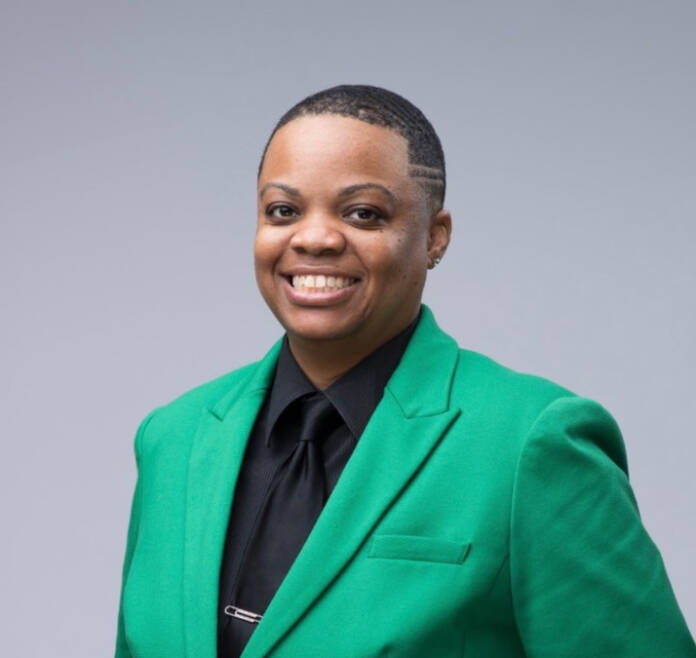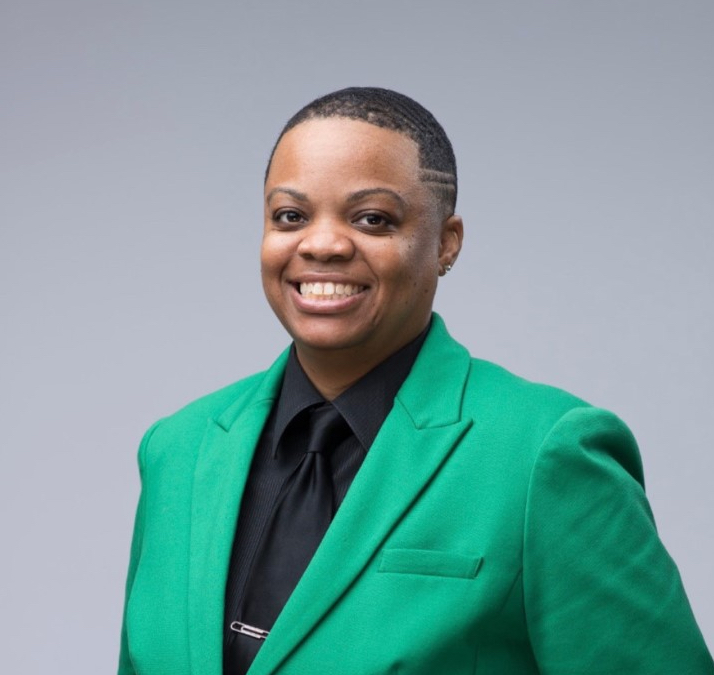
This year is Pride 50 — or it was supposed to be.
When San Francisco Pride, for which I am President of the Board of Directors, canceled its long-planned Parade and Celebration on April 14 for public health reasons, we worked with our staff and members of our communities to create the best possible online alternatives we could. We have put together panel discussions, reconfigured our 20-plus stages into 13 hours of digital programming, and generally done all we can to provide hope and solidarity to the Bay Area’s LGBTQ+ community even though we cannot bring hundreds of thousands of people together in Downtown San Francisco on Saturday and Sunday, June 27-28, as planned.
But, as recent events have shown, it is not enough.
The deaths of George Floyd, Breonna Taylor, and Tony McDade—a Black trans man, and the one whose murder received the least attention—have shifted the narrative further from the celebratory tone we had envisioned more than the COVID-19 pandemic ever could. The public-health emergency that is racist police violence requires me to speak out more than ever, because Pride is a defense of Black bodies and always has been.
Many people—even LGBTQ-identified people—don’t know the true origins of Pride. They may not know that Black transgender women led the August 1966 Compton’s Cafeteria Riot, an early anti-police action in San Francisco, or that it was Marsha P. Johnson, a transgender Black sex worker and activist known as the Mayor of Christopher Street, who is said to have thrown the first brick at Stonewall in Manhattan less than three years later.
Nor do they know who threw the first punch that preceded that symbolic brick. It was a Black butch woman named Stormé DeLarverie, who was violently detained by police and even paraded through the crowd. Before she was violently shoved into the back of a cop car, blood on her face, she asked the crowd, “Why don’t you guys do something?”
In this foundational story, Stonewall was started by a Black trans woman in defense of a Black butch woman.
More than 50 years later, the resulting Pride movement has become one where hardly any Black faces are seen, and the struggle of Black bodies continues to be ignored. In an interview last year with The Breakfast Club, David Johns of the National Black Justice Coalition noted that gay neighborhoods and coming-out movements were never meant for Black people. They were for white gay people to gain social and political power. By and large, Black folks never moved into gay districts—and they weren’t necessarily welcome, either. They tend to stay in Black communities, because it’s safer.
Help us save local journalism!
Every tax-deductible donation helps us grow to cover the issues that mean the most to our community. Become a 48 Hills Hero and support the only daily progressive news source in the Bay Area.

Now we are at another moment in which the world is listening to what Black people have to say about the atrocities and violence that are repeatedly visited on them. Yet we continue to center whiteness in these struggles. The most controversial thing that a Pride organization can do is elect a Black woman as president who speaks her mind and doesn’t cater to fragile whiteness. Trust me, I get it all the time from people who will yell slogans from the top of their lungs, but whose actions show an immense disdain for Black people—particularly Black women—while how the Pride machine allows them to display this disdain relatively unchecked.
Here in San Francisco, a group of men even felt emboldened to show up like a Jim Crow-era lynch mob at a Black woman mayor’s house with firecrackers and lighters lit like torches allegedly changing their message from “Black Lives Matter!” to racial epithets taunting her to come outside. That is the way Black people are treated.
I am so thankful that in a world that didn’t want me to learn a thing about Black queer history, I know exactly which ancestors held me and who sent me here. I stand on the back of Bayard Rustin, the dynamic community organizer who created the 1963 March on Washington only to be banished from the Civil Rights movement because he was gay.
I stand squarely on the back of Barbara Jordan, who was among the first Black women elected to Congress — but who stay closeted her entire life, as she feared that an out Black woman could never win a political seat.
I stand on the back of living legends such as the filmmaker Cheryl Dunye, who taught us to reclaim our Black queer spaces in existing narratives, and the dynamic playwright and poet Jewelle Gomez, who taught me that lesbians could dream of a future. I am thankful in this lifetime to have shared community with Jewel Thais-Williams, founder of the Catch One disco, which would become the oldest gay club in the nation.
At 41, I have now lived through Rodney King, Trayvon Martin, Sandra Bland, Eric Garner, Jordan Davis, Willie McCoy, Philando Castile, Walter Scott, and so many others that I can’t remember or name.
Like many other Black folks, I am angry that white people who have seen all those deaths are just now getting it. Like many Black people, I’m drained by their triggered responses. But you know what’s worse? Folks that know that racist police violence is an issue, but can’t do the one thing it takes to break the system, the one thing it takes to break the stranglehold of white supremacy on society, the one thing it takes to stop anti-Blackness from being taught worldwide: Stop centering whiteness.
You have read enough books and listened to enough lectures to know exactly what to say. You know when to use terms like “intersectionality” and “anti-blackness.” You know to say you are doing it because not doing that absolutely makes you look racist. But the one thing you need to do, you just can’t. If you aren’t here to center Black queer lives, then this movement isn’t for you. There is nothing more important than to listen to Black people, and center their experiences, thoughts, and values.
There is a song, written in tribute to Freedom Fighter Ella Baker, that says, “We who believe in freedom cannot rest.” If we believe that we truly can’t rest then we must do this. Someone once recalled being asked, “Do you wanna do what’s right, or do you wanna make history?” We choose to make history. We choose to fight—because Pride is a defense of Black bodies, and always has been.
Carolyn Wysinger is an educator and the President of the Board of Directors of San Francisco Pride.

